A few days ago the world celebrated the annual Bitcoin pizza day, a quaint remembrance day among Bitcoin enthusiasts of the very first ever Bitcoin transaction. This is where a man traded 10 000 Bitcoin for two pizzas. The mind boggles at the concept, especially now that 1 Bitcoin is worth over $100000.
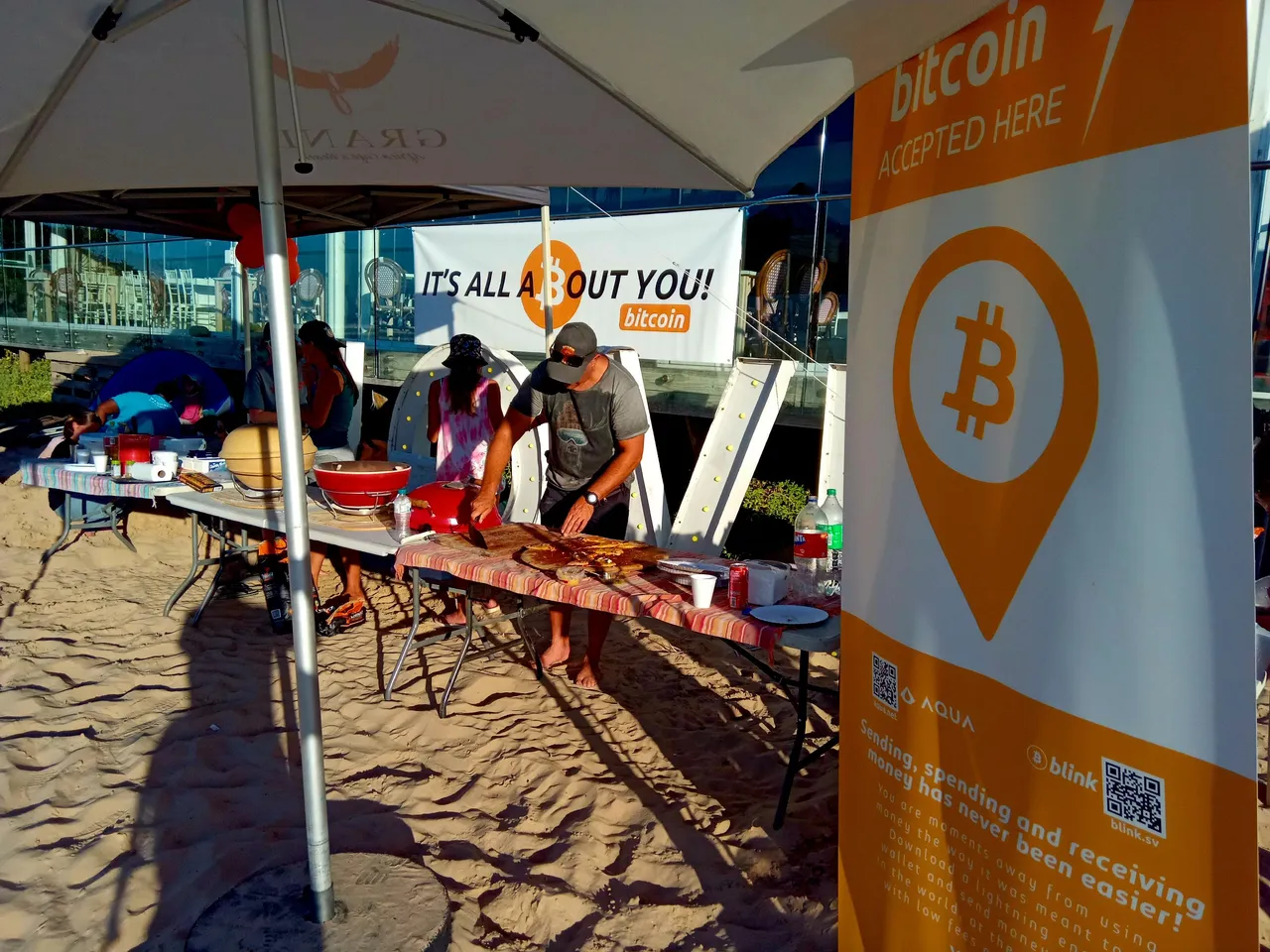
Bitcoin Pizza Day is celebrated on May 22 each year, marking the anniversary of the first known commercial transaction using Bitcoin, when Laszlo Hanyecz paid 10,000 BTC for two pizzas in 2010.

Well here on the southernmost shore of Africa, a burgeoning Bitcoin community decided to celebrate the occasion in true Bitcoin style - with free pizza and an education drive to promote Bitcoin use as a medium of exchange and store of value.
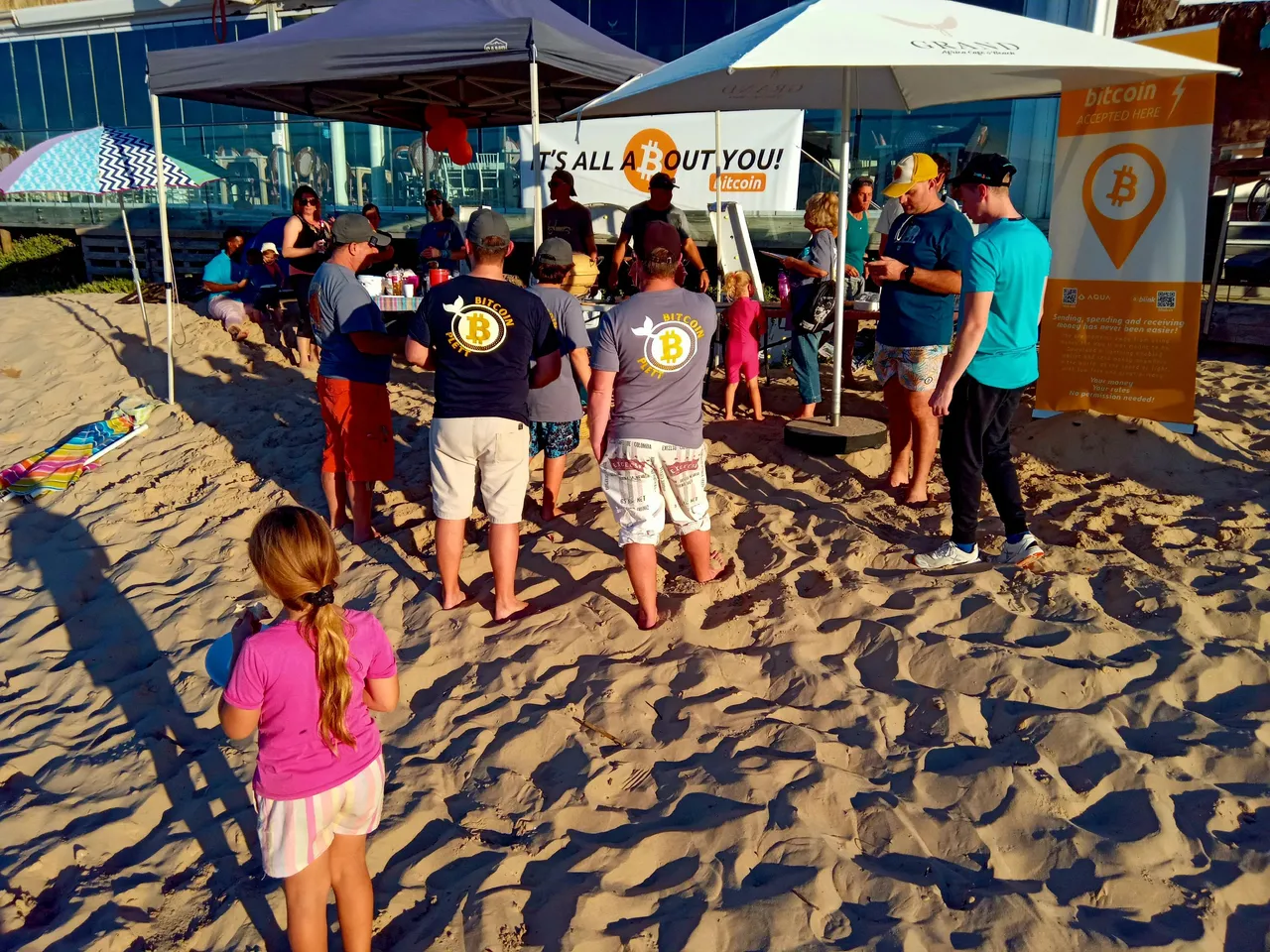
You may have heard of the now iconic Bitcoin Beach in El Salvador, the first nation to officially adopt Bitcoin as legal currency. The beach, named El Zonte, was a pioneer in manifesting a circular economy, where businesses accepted bitcoin via the lightning network.
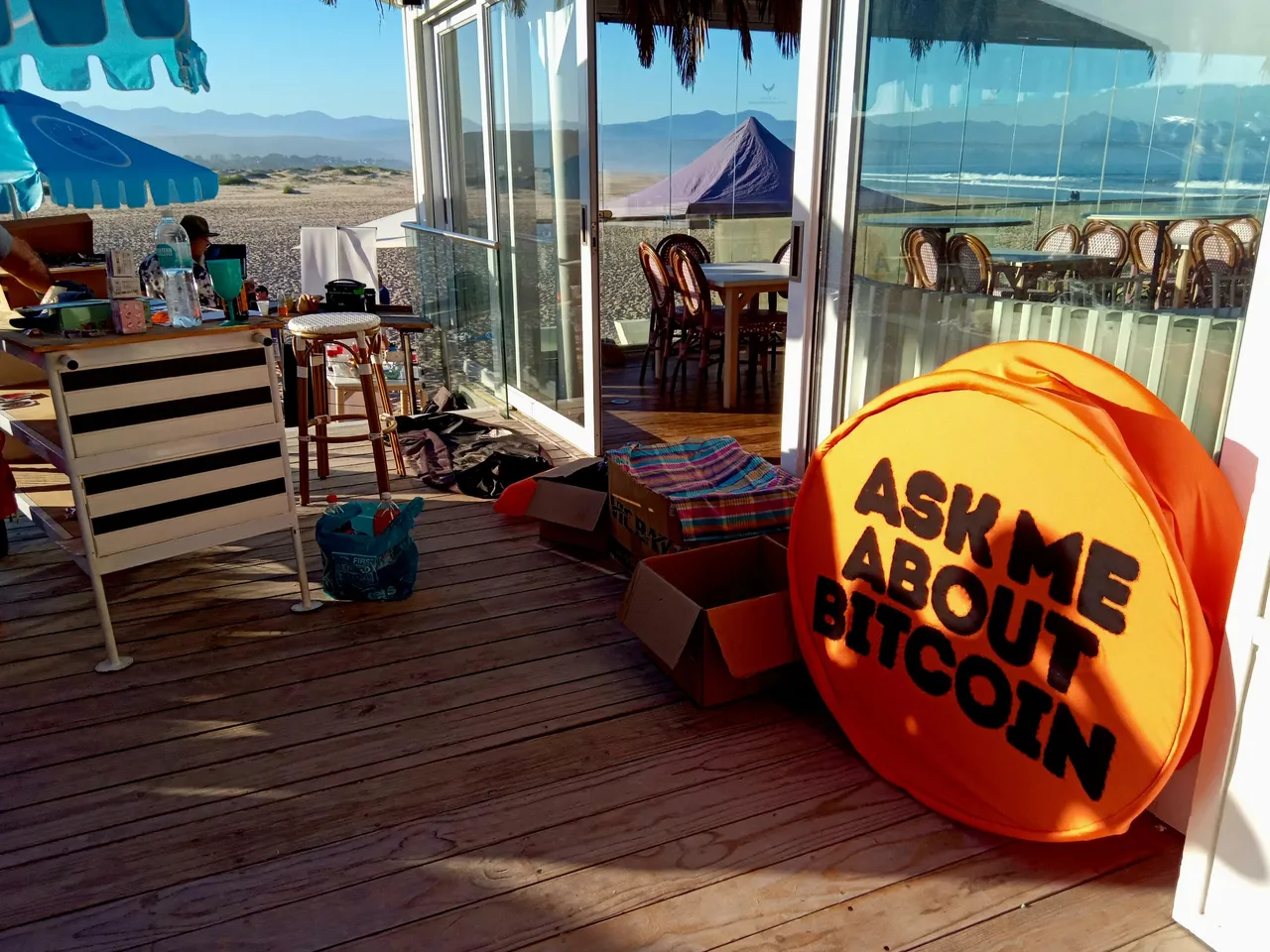
Well now we have another beautiful seaside town that is doing exactly the same thing, here on the South coast of Africa. The town is called Plettenberg Bay.
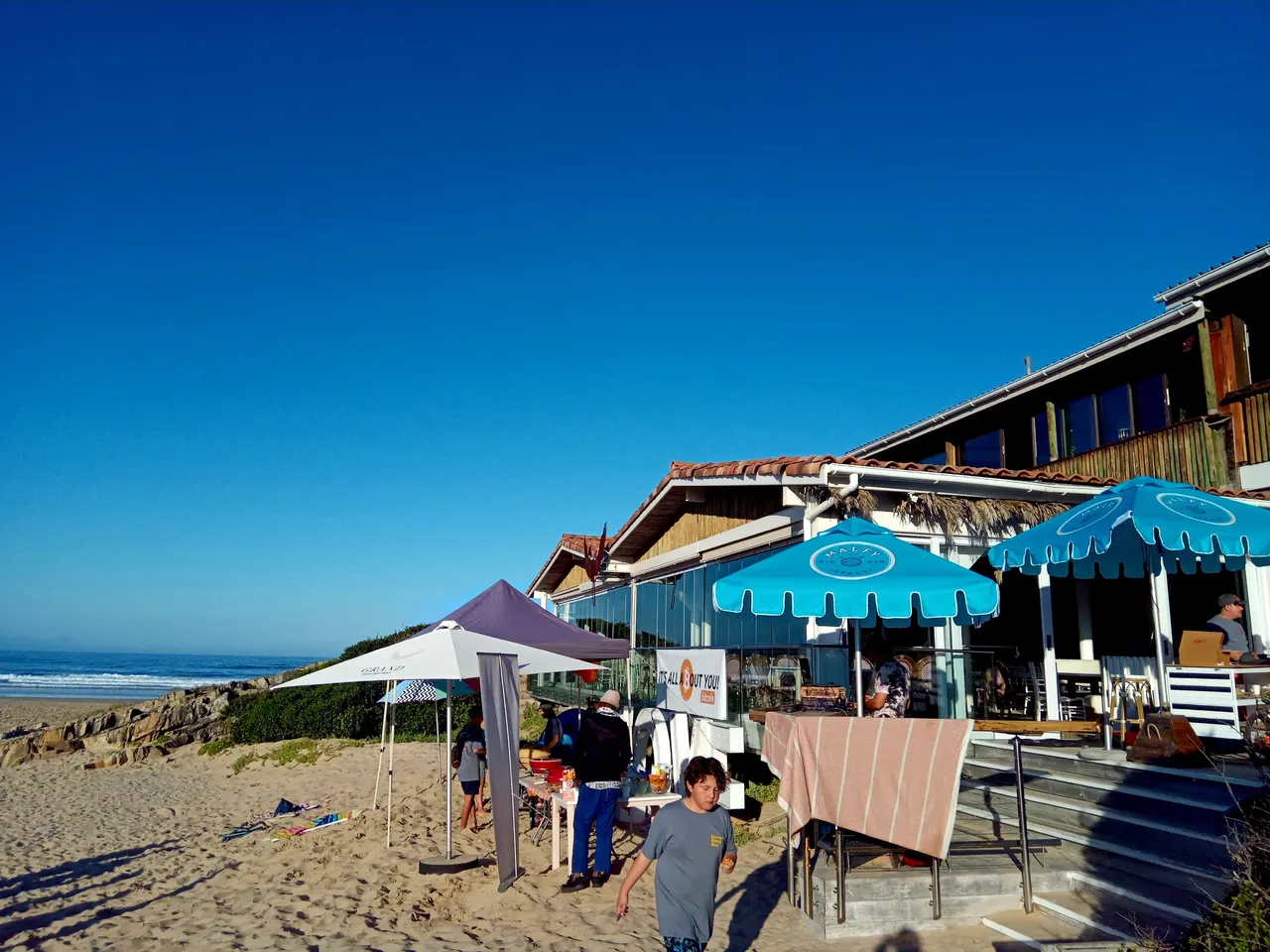
Thanks to the eager and active promotion of the concept by a few Bitcoin enthusiasts, this town has become the home of possibly the largest amount of commercial businesses in the country accepting Bitcoin as payment via the lightning network, a second layer platform on the Bitcoin blockchain.
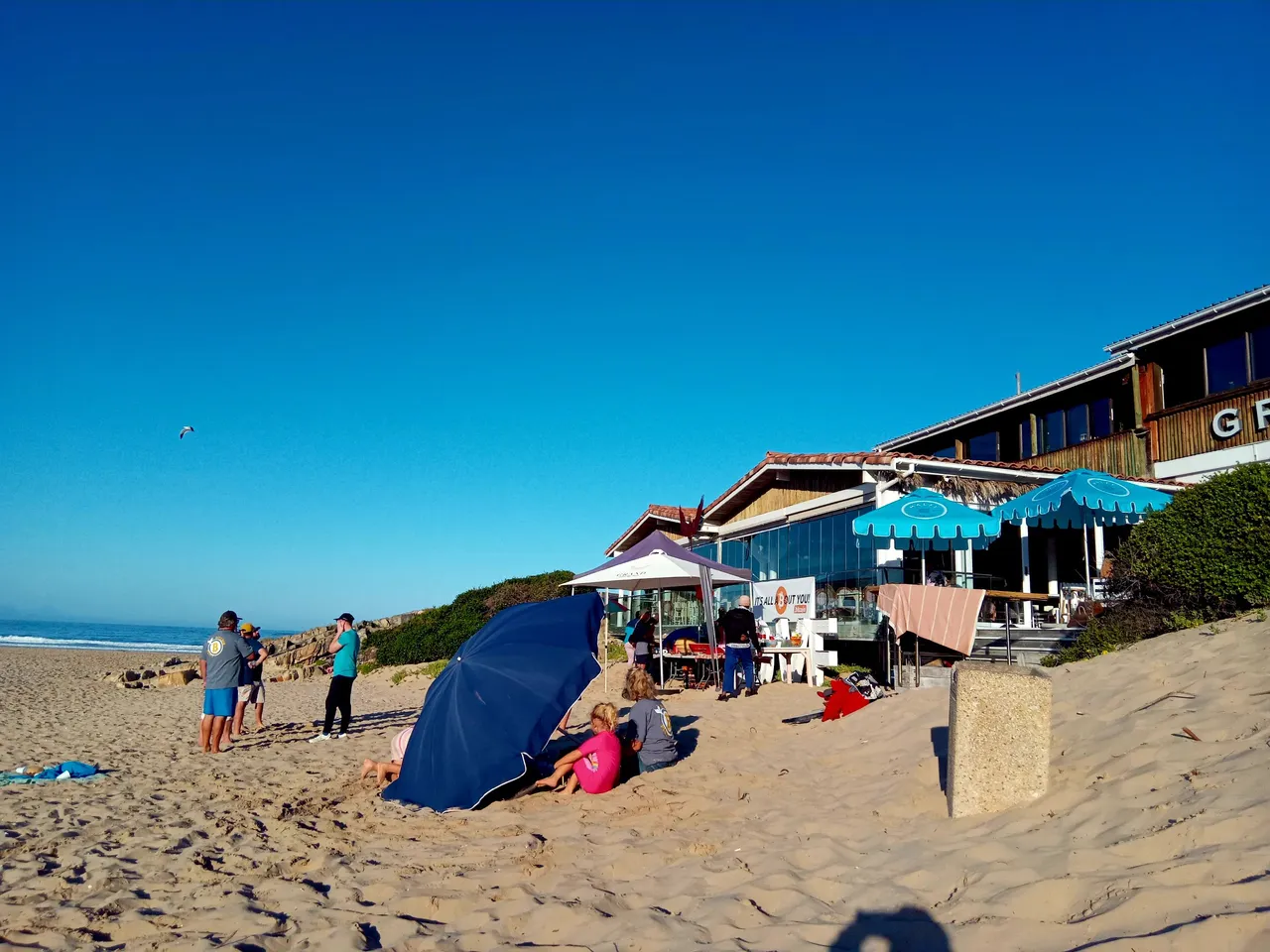
By emulating the fine example of El Zonte, we African locals are using their original Salvadorian app called the Blink wallet, a new digital wallet downloaded onto the mobile device, which can scan a QR code and send or receive instant Bitcoin payments without delay, and without any transaction fees.

Traditionally a fee is charged to move your Bitcoin from one address to another. The fee is the same regardless of the amount of Bitcoin you're moving. If it's $10 or $1 million, you pay the same amount.
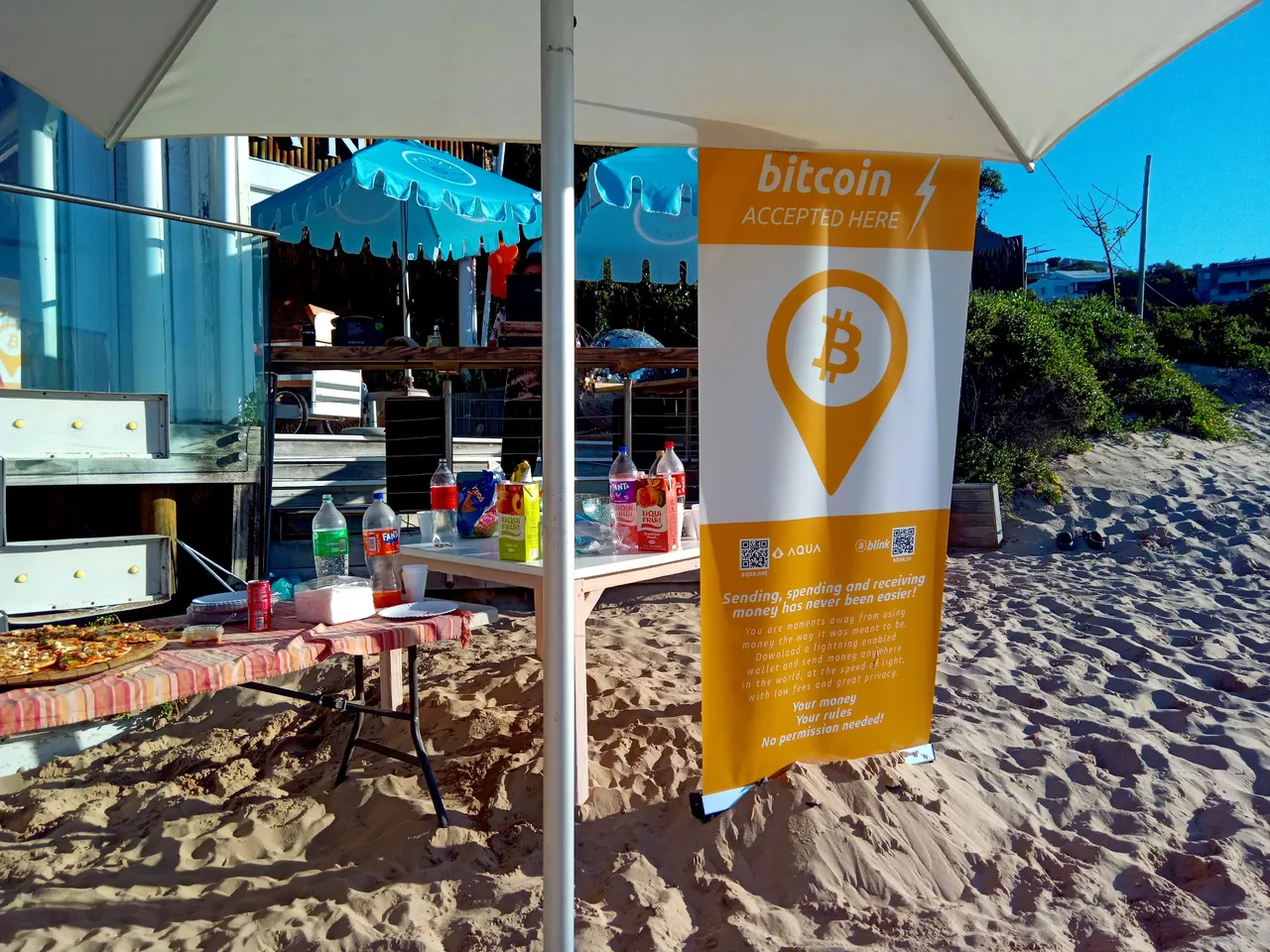
Bitcoin Average Transaction Fee is at a current level of $1.432, down from 1.522 yesterday and down from 2.163 one year ago. This is a change of -5.92% from yesterday and -33.80% from one year ago. Bitcoin Average Transaction Fee measures the average fee in USD when a Bitcoin transaction is processed by a miner and confirmed. Average Bitcoin transaction fees can spike during periods of congestion on the network, as they did during the 2017 Crypto boom where they reached nearly 60 USD.
It's no problem paying a little fee like that if you're moving $1 million, or any large amount, but if you just want to buy a cup of coffee or engage in any micro transaction, then a fee becomes prohibitive. Especially during periods of high transaction volume, as seen at certain periods in the Bitcoin cycle when usage, and thus the fee, spikes.

For this reason the public have been adverse to adopting Bitcoin as a medium of exchange. And understandably so.
Until now.
Now, with the arrival in recent years of the second layer and lightning network as it's called, (due to the speed) anyone can send or receive any amount of Bitcoin or Satoshis (sats) - fractions of a Bitcoin - with no fees whatsoever, and instantly.
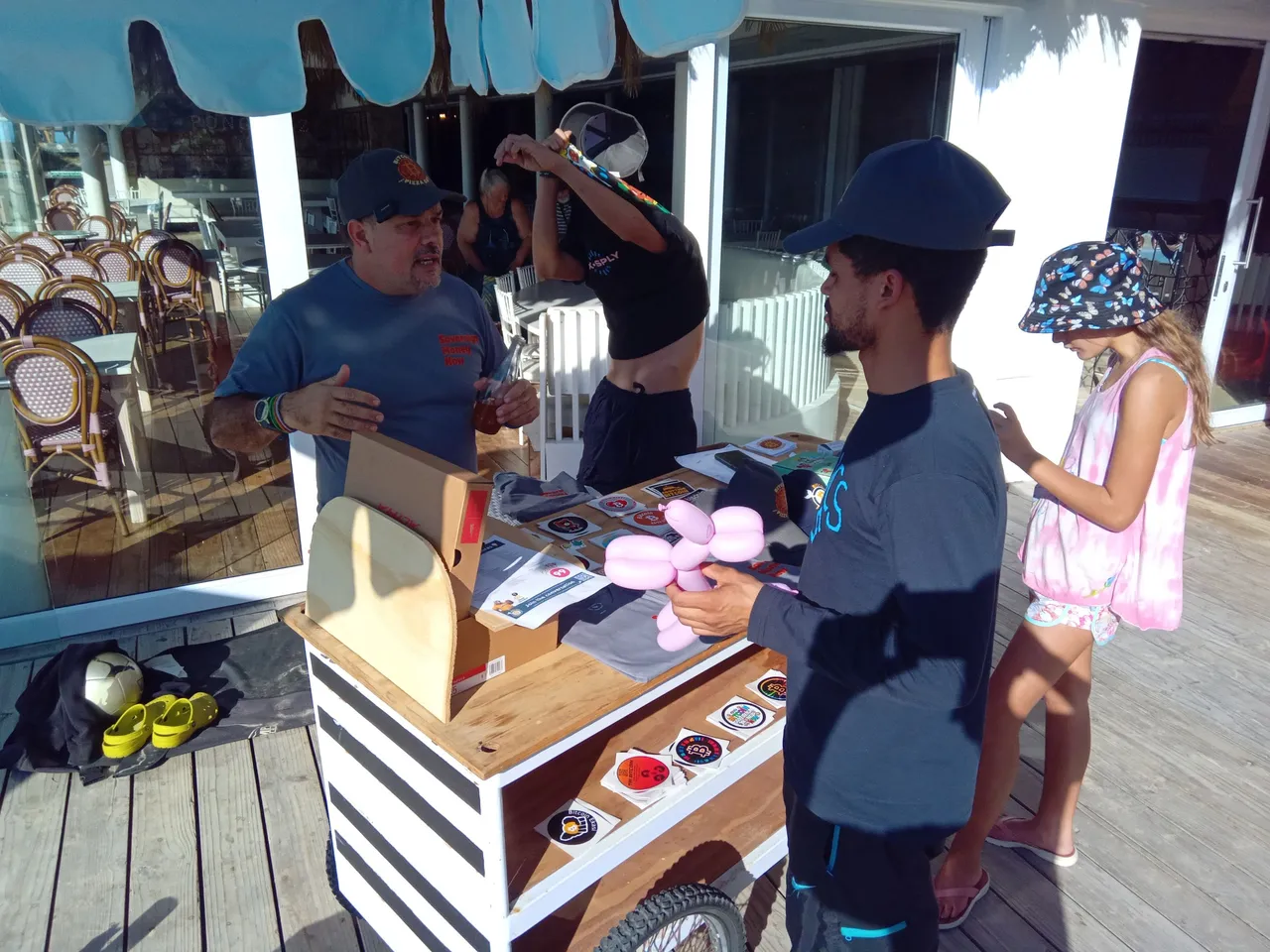
The other problem was that traditionally it takes a few minutes for a transaction of Bitcoin to be processed, which is the second reason why using it for micro payments at a store was so prohibitive. You don't want to have to wait around for ten minutes or more just to confirm your purchase of a drink or snack while you're on the move.
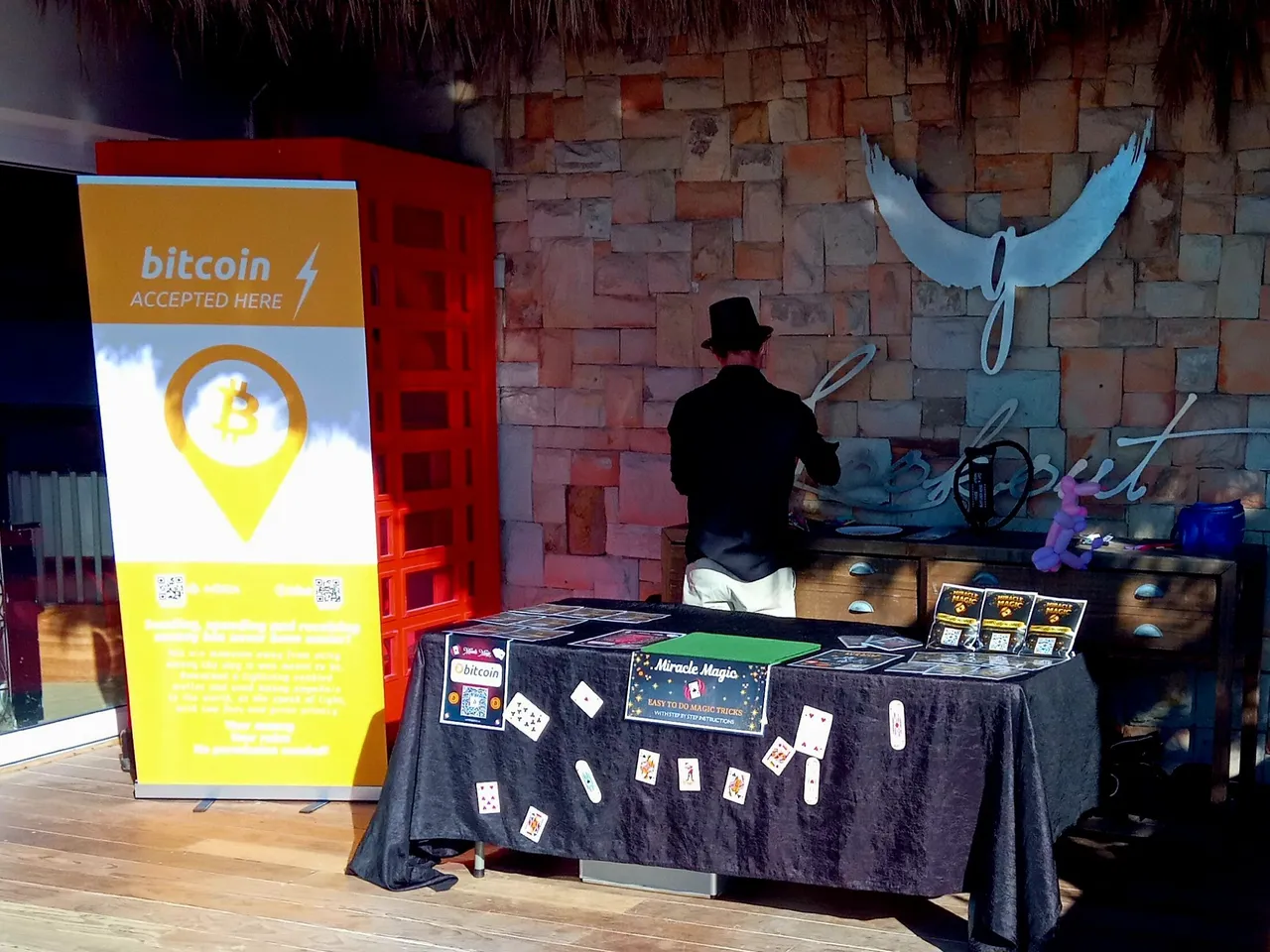
The lightning network has solved both of these crucial challenges in the adoption of Bitcoin as efficient medium of exchange for anyone anywhere in the world. All you need is the free Blink wallet app (or any other lightning wallet) on your mobile device, and you're good to go.
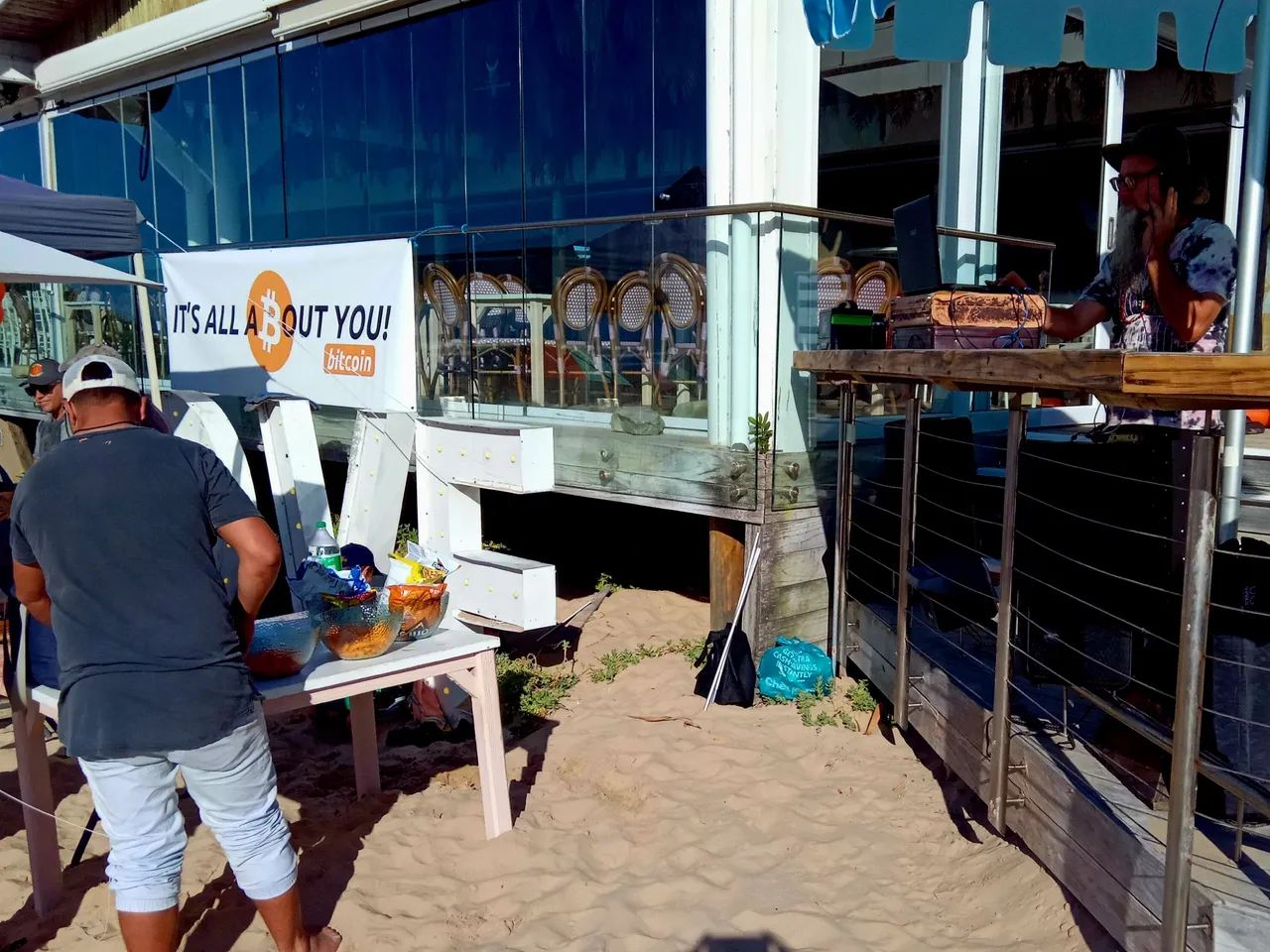
In this photo you can see the DJ who played music throughout the party
Amazingly Hive blockchain also has its own similar app called V4V, which we can use to swap Hive tokens or HBD for sats, and pay with Bitcoin via the lightning network. It's brilliant.
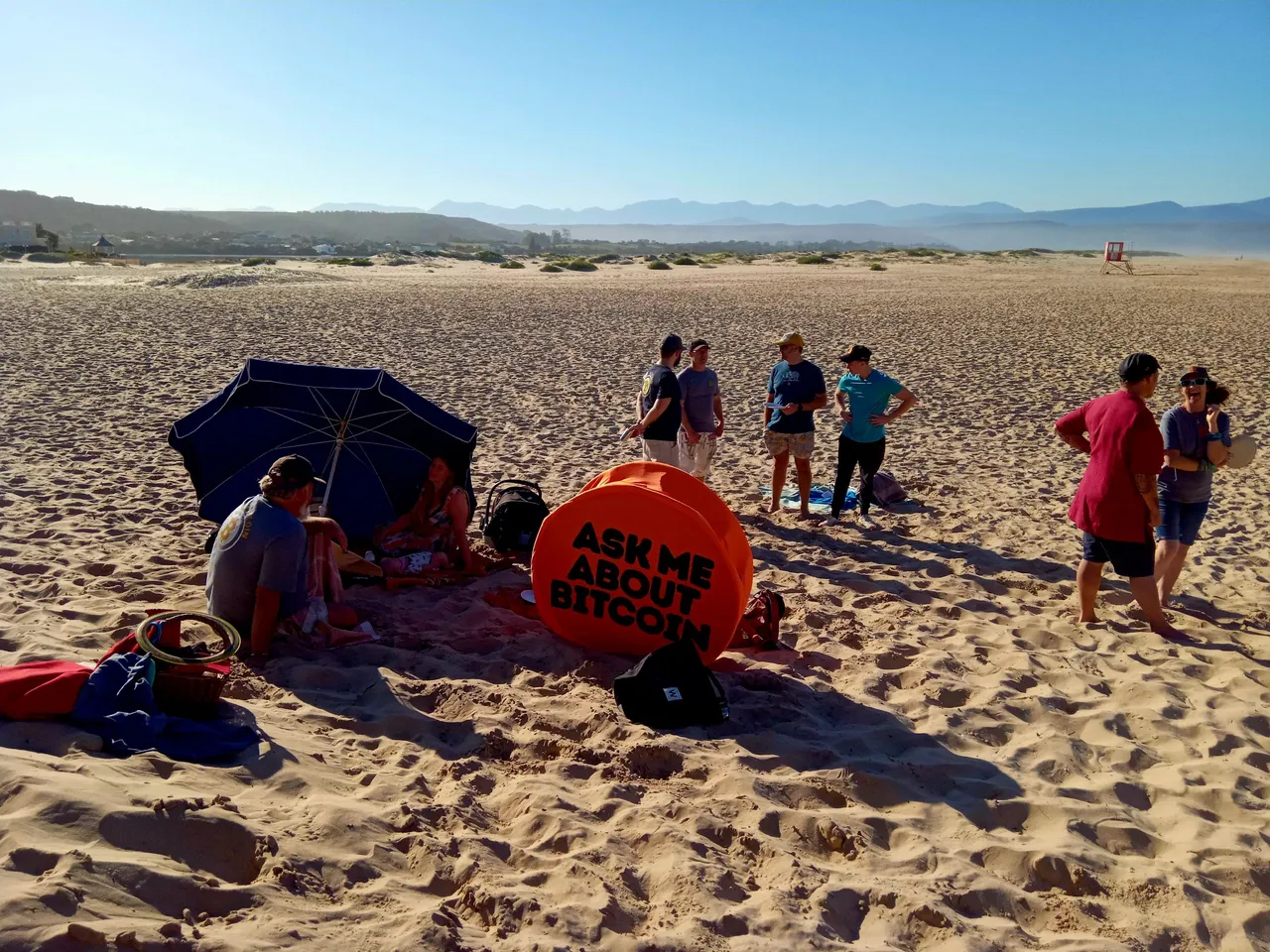
And here on the sunny shores of South Africa, locals decided to celebrate Bitcoin pizza day by inviting Blink wallet users to attend the Bitcoin beach party and receive free pizza slices all afternoon.
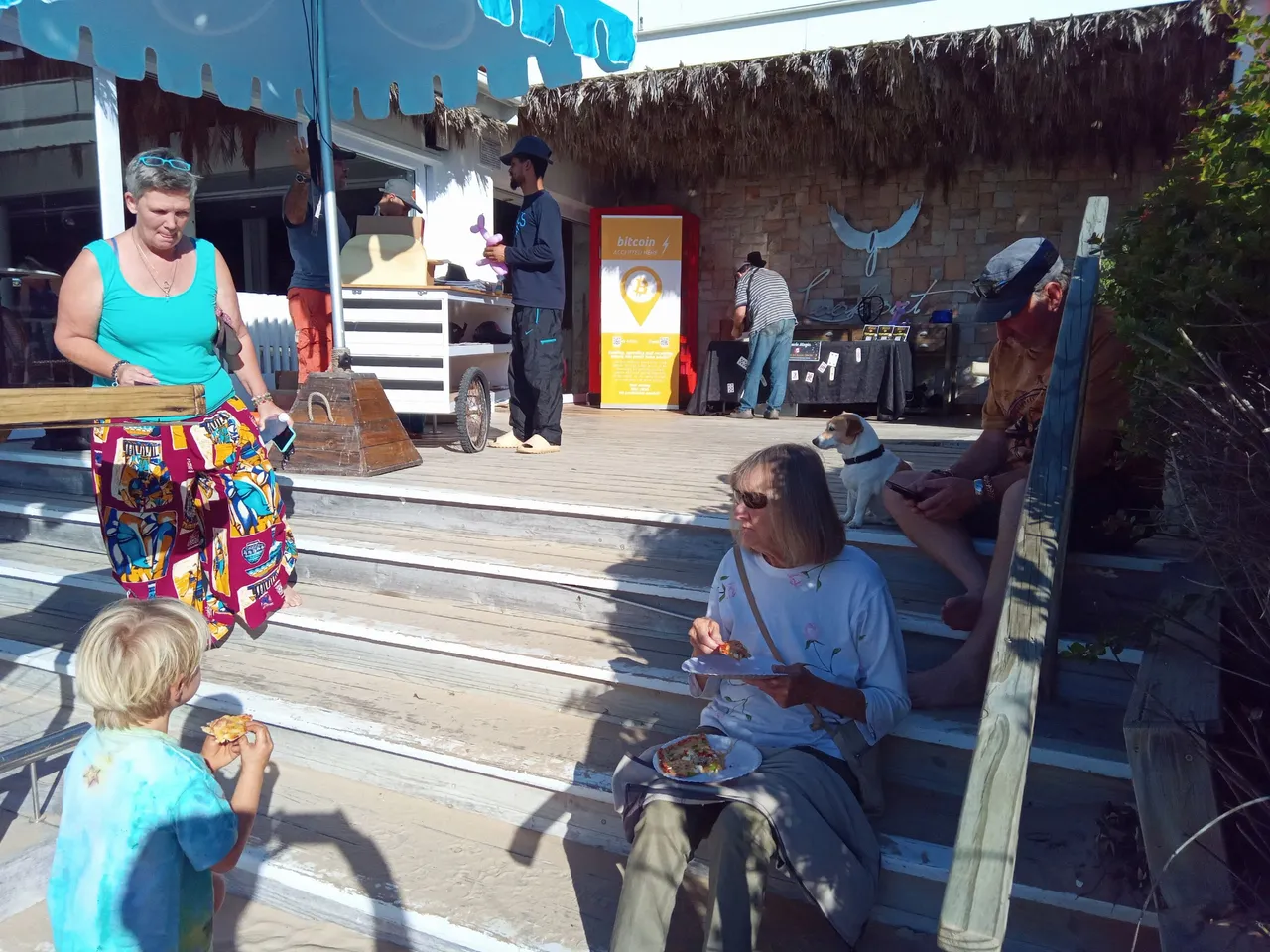
The event was also an opportunity to promote Bitcoin and the lightning network to any interested parties. Already a massive drive to onboard new users in this little town of Plettenberg Bay has been underway all year now, and the results have been quite impressive. At this stage there are close to 100 different businesses that accept Bitcoin for goods or services via the Blink wallet.
This includes a major national chain store, called Pick n Pay, where you can buy all your food and household cleaning items, totally bypassing the local fiat currency and the bank. How empowering is that!
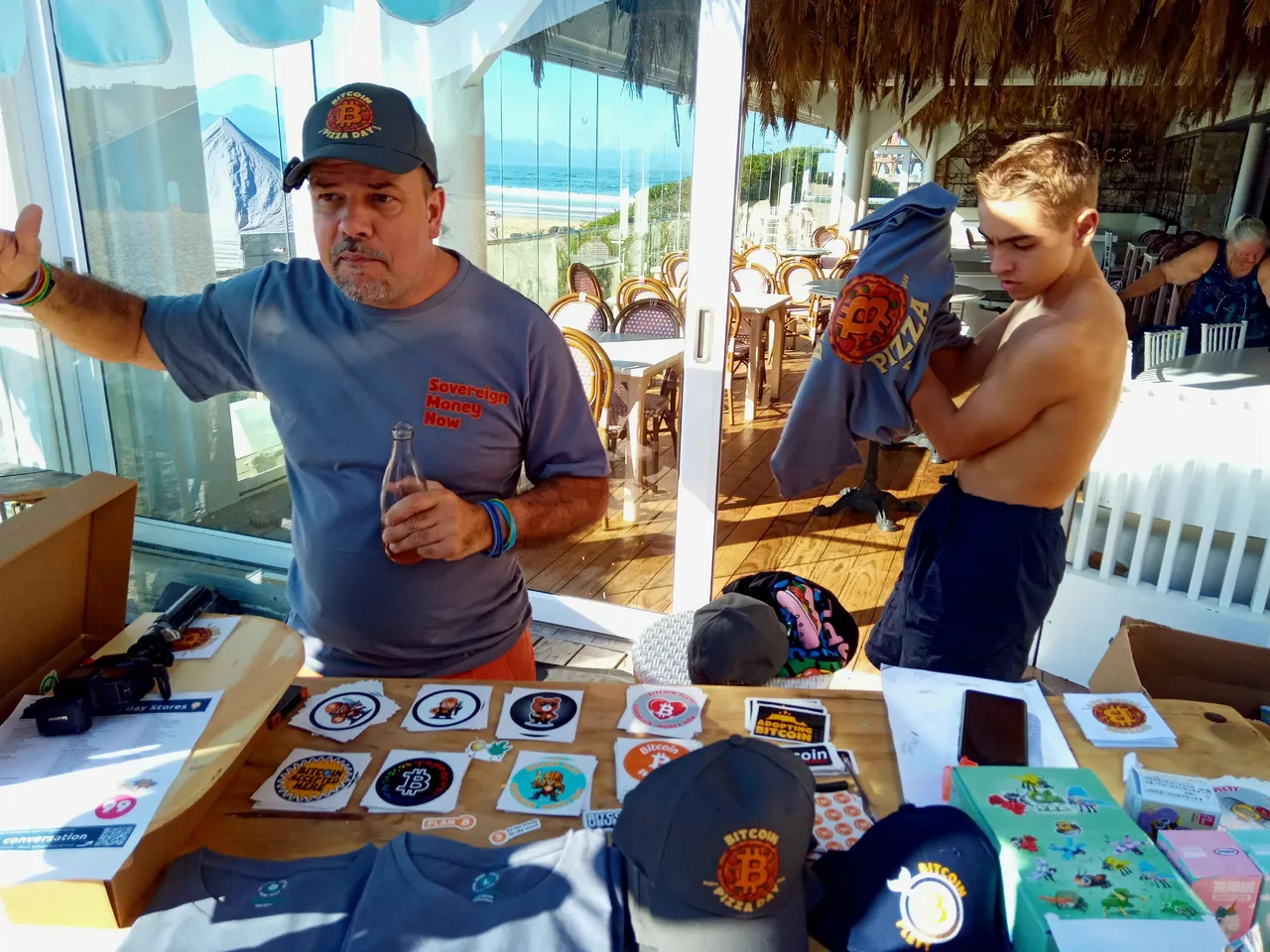
The local Bitcoin enthusiasts put on the Bitcoin pizza day party on the beach to basically further educate any of the large group of new Blink wallet users who have just been introduced to Bitcoin in recent months. Attractive original caps and T-shirts were on sale, and I purchased mine with Bitcoin sats via the Blink wallet. The pizza was, as I said, free.
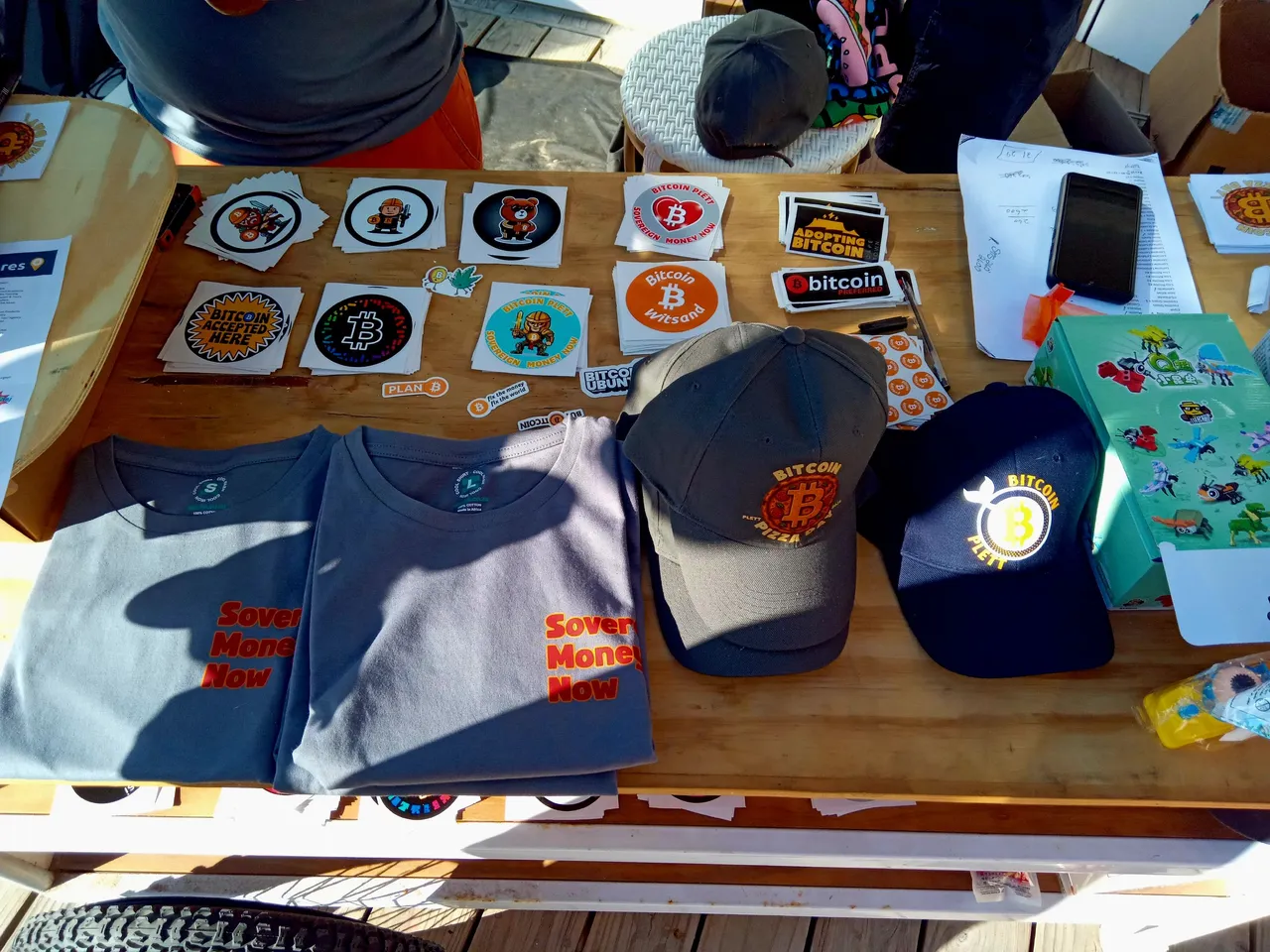
In this way Bitcoin adoption has officially gone mainstream, at least in El Salvador and here on Africa's own Bitcoin beach. And this town is not the only one where Bitcoin adoption is growing on this southernmost shoreline of Africa. A few hundred kilometers to the west we have other smaller beach towns, like Witsand, where educational drives have onboarded almost the whole town in recent years.
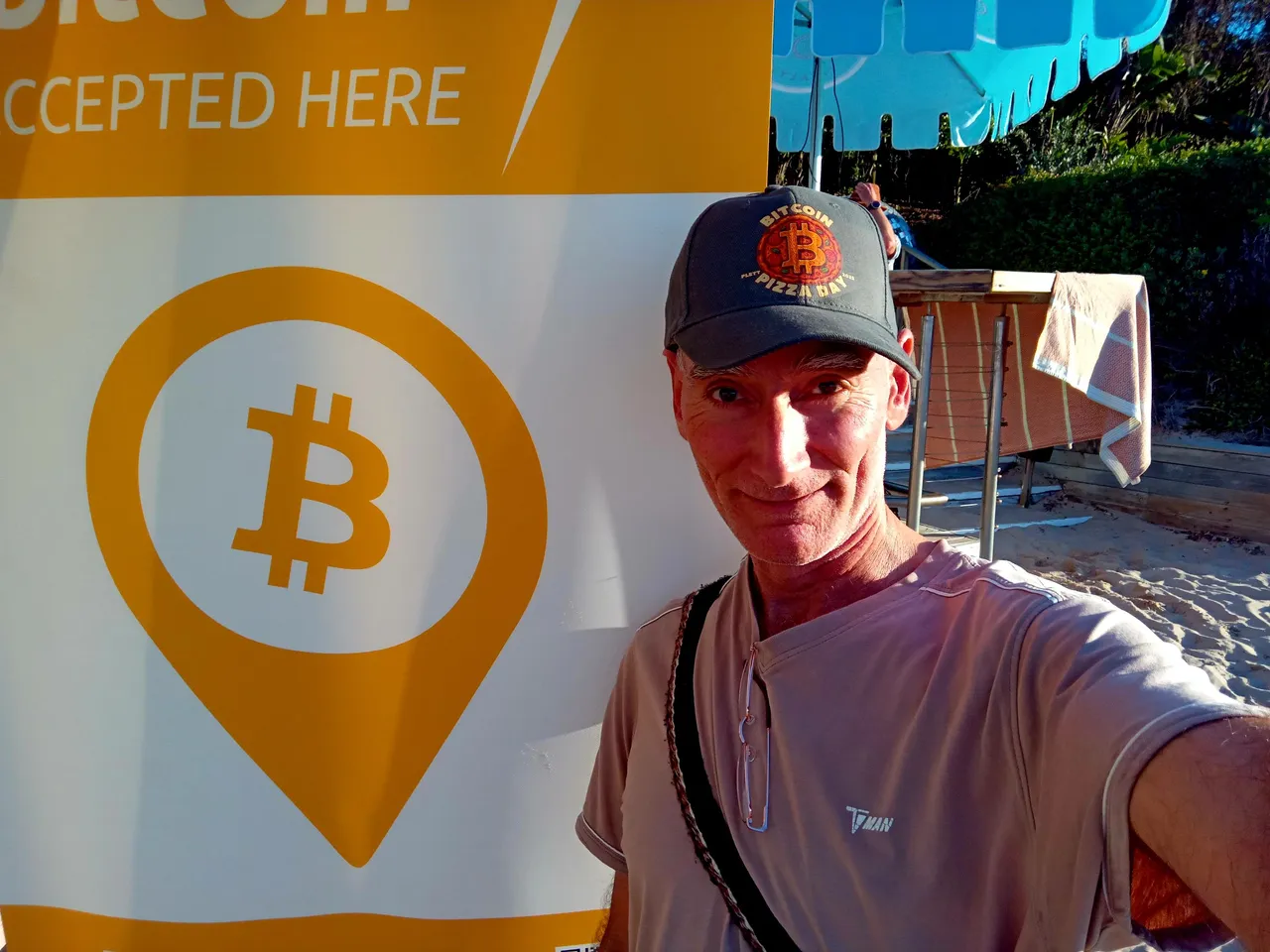
This really empowers local Africans who may be part of the unbanked, including the vast amount of foreign nationals who come here as migrant workers from other African nations further north, but who are unable to open a local bank account. They're also obliged to sometimes pay big fees to send their earnings back home. Or they're subject to risky or extortionist channels to send their money home to counties like Zimbabwe, Malawi and others.

Now all those problems are solved with the adoption of the Bitcoin lightning network wallets. This is truly why Bitcoin was invented in the first place, in my opinion. Satoshi Nakamoto observed the dubious practices of banks and fiat currencies and aimed to solve that problem and empower the people.
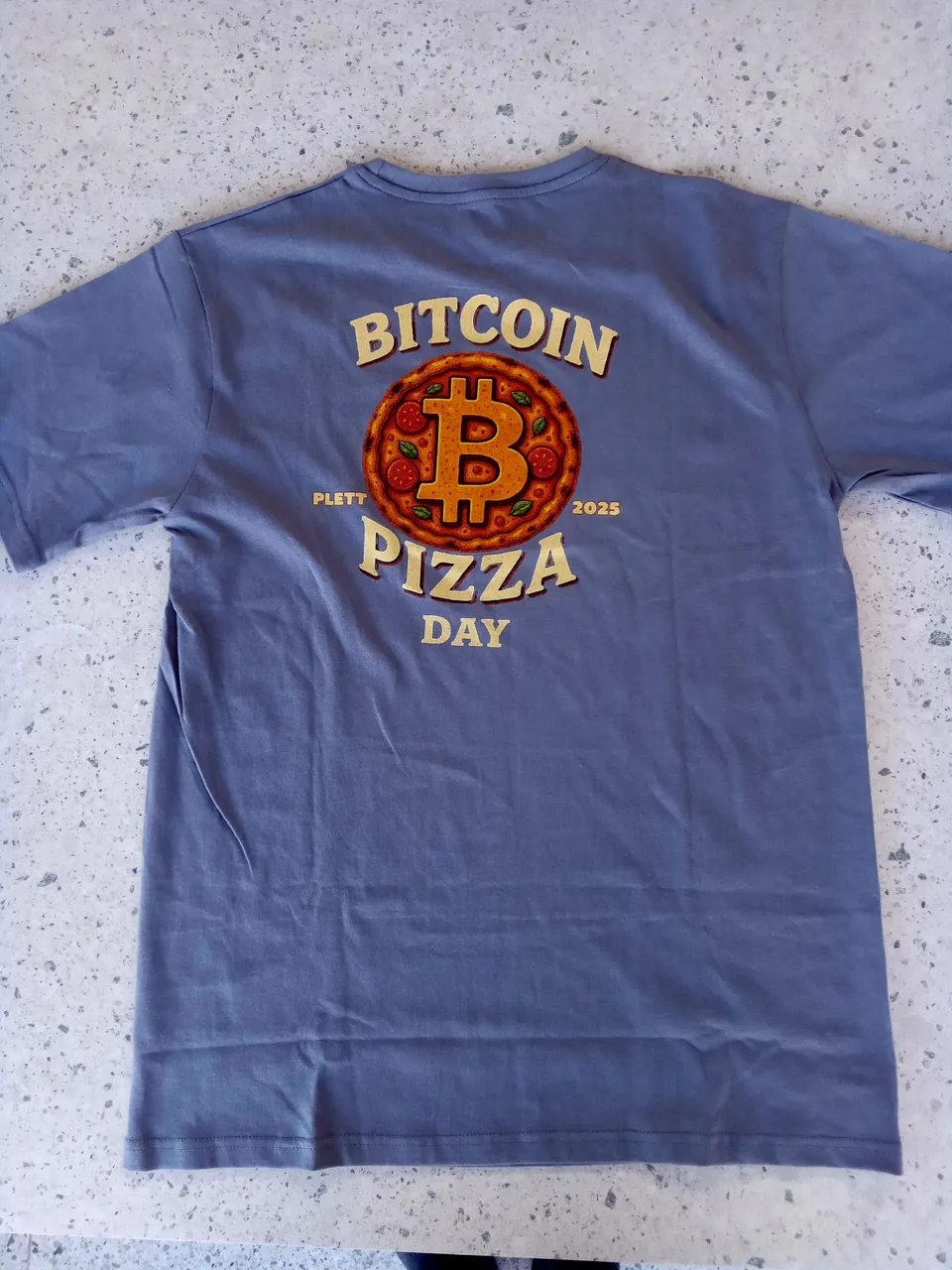
As the saying goes: gold is God's money, fiat is government's money and Bitcoin is the people's money. Today I've experienced it in action directly and have the T-shirt to prove it.
Photos my own.
Reference:https://ycharts.com/indicators/bitcoin_average_transaction_fee